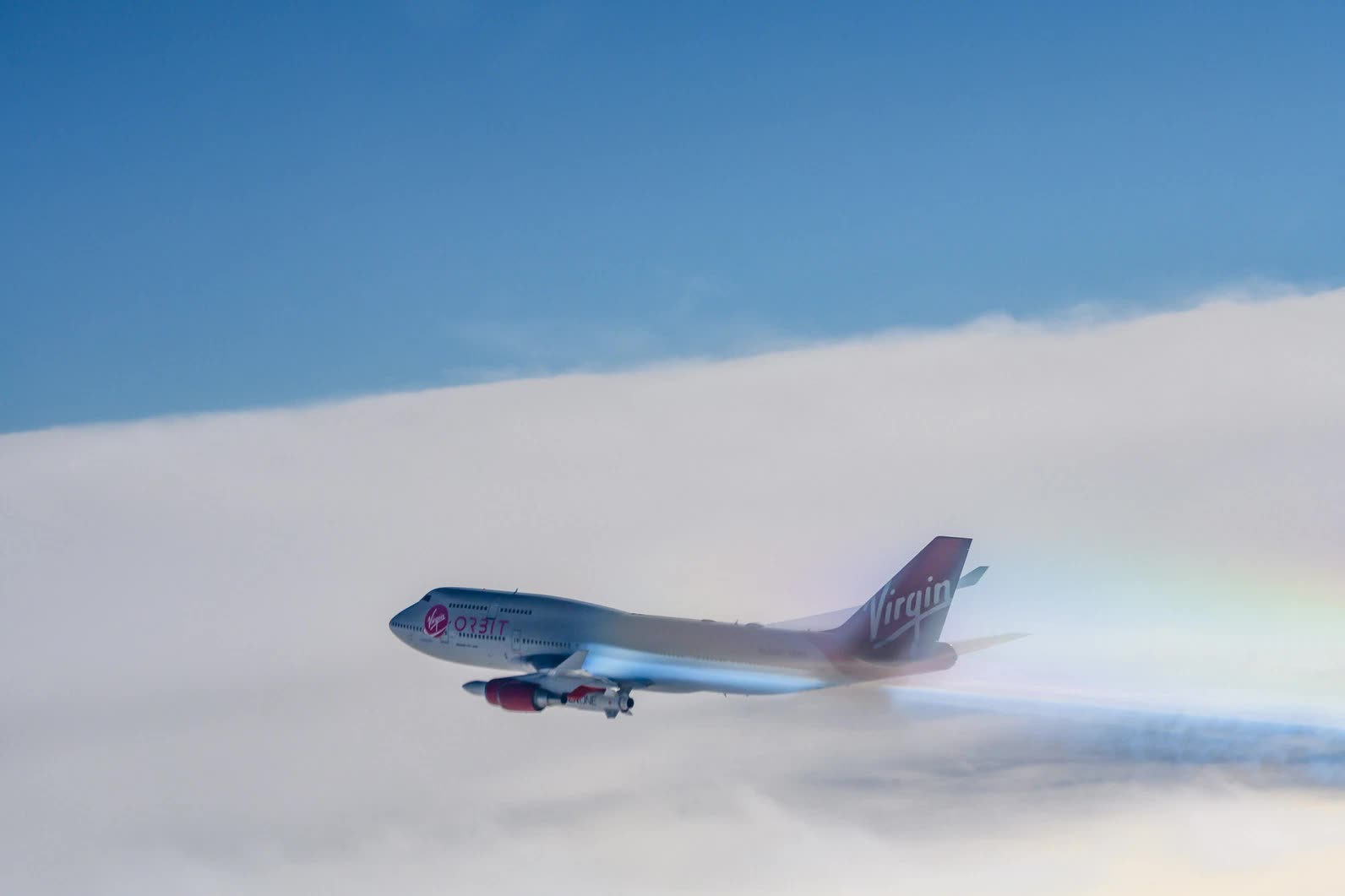What just happened? The UK's first-ever orbital launch attempt took place last night, but the occasion will likely be remembered for all the wrong reasons after the satellite mission failed to reach orbit due to an undisclosed "anomaly." A disappointing end to what had been hailed as a new space era for the country.
The Virgin Orbit "Start Me Up" mission launched from Spaceport Cornwall on January 9 in front of more than 2,000 spectators, becoming the first-ever space flight attempt to launch in the UK.
The first part of the mission saw a converted Boeing 747 called Cosmic Girl take off successfully and release the LauncherOne rocket, which carried nine satellites, off the southwest coast of Ireland at 6:11 PM ET. The rocket's NewtonThree engine ignited successfully, and the first stage headed toward orbit.
As we find out more, we're removing our previous tweet about reaching orbit. We'll share more info when we can.
— Virgin Orbit (@VirginOrbit) January 9, 2023
Virgin One tweeted that the rocket had reached earth's orbit, but the company soon deleted the post and, 28 minutes after the first tweet, posted a new message confirming an anomaly had prevented the rocket from reaching the required altitude.
Matt Archer, the director of commercial spaceflight at the UK Space Agency, said that while the first-stage launch was successful, the second stage failed. An investigation looking into the failure is taking place over the coming days.
The rocket and its payload of satellites were lost. Archer said its trajectory puts it over main bodies of water, so it's "completely safe." Cosmic Girl and its crew safely returned to Spaceport Cornwall.
Ars Technica notes that the biggest loser in all this could be Virgin Orbit, a US-based small launch company. Although it had reached orbit on four of its first five attempts before yesterday's failure, it is struggling to launch enough missions to break even. Engadget writes that the UK mission was especially high-profile as it also marked the first international launch for Virgin Orbit and the first commercial launch from Western Europe.
Melissa Thorpe, the head of Spaceport Cornwall, didn't hide her disappointment "We're a resilient team. This isn't the first time we've been knocked but this is the biggest definitely. We'll get up and we'll go again," she said. "It's just absolutely devastating, and we put our hearts and soul into this. The next time we go it will be even better."
https://www.techspot.com/news/97219-first-ever-attempted-space-flight-launch-uk-fails.html
